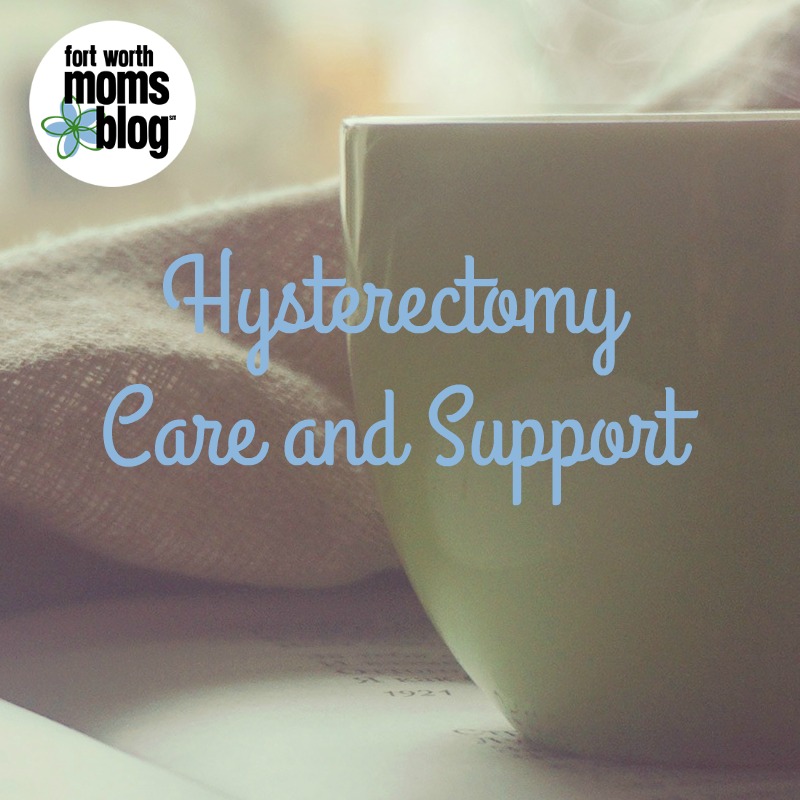
Learning you need a hysterectomy can be scary. In most cases, a hysterectomy is not an elective surgery. A hysterectomy is a surgical operation to remove all or part of the uterus. In my own experience, I learned a hysterectomy is the second most common surgery among women in the United States (the most common surgery in women being childbirth by C-section). There are several types of hysterectomy surgeries. I had an abdominal hysterectomy, with an incision in my lower abdomen.
I was so happy I was up-to-date on annual gynecological visits when learning I would need a hysterectomy. Although life gets hectic and chaotic after children, making my annual exam was always a priority. Having a relationship with my OBGYN made the surgery experience palatable. Often, women are quick to ignore discomfort or listen to others’ experiences rather than getting checked out for themselves. Make time to see your doctor for you. If you do not have one, ask a friend or a trusted source for a recommendation.
If you find out you will need a hysterectomy, take as much care as you can to plan and prepare. When a woman finds out she will need this invasive procedure, she will have many questions. The doctor’s office is a good place to start! Get your questions answered prior to surgery. Write your questions down, and do not be shy about asking questions of your doctor and health care professionals. Understanding the procedure, the impact of the surgery on your body, and the recovery period is important.
It helps a great deal when your husband has an understanding of your needs. Our young boys understood the basics: Mommy needs surgery. Gentle conversations and sharing plans for surgery day helped them prepare for my illness and interruptions to our normal schedule.

Chances are you already know someone else who has had a hysterectomy. Draw on the numerous sources around you for your support and information. Many websites also provide support; one of my favorites I found was HysterSisters. Just remember every woman’s experience is different, so keep this in mind as you are filtering through opinions and advice.
Here are some personal tips I found helpful. I hope these tips will help you as you care for yourself or a loved one during this time.
Prior to surgery:
- Tell your close family and friends. They will want to be there for you to offer support, well wishes, and practical assistance.
- Plan out the logistics of your surgery day in advance. Think through details such as hospital transportation, childcare, work relief, and recovery care prior to your surgery.
- If you can, prepare a few quick and easy freezer meals ahead of time. It will save time and energy during your future recovery. Quick meals are freezer casseroles, chili, and soups. Stock your fridge and pantry with healthy snacks and beverages for yourself and your family.
- Determine important family activities and household priorities as you wait for your surgery date. Some activities such as optional school outings, personal gatherings, and extracurricular events may need to be cut from your list. This is okay. You are about to undergo major surgery. You do not need to feel guilty for lightening your load.
- Plan to have a few oversized nightshirts and oversized underwear available during the first few weeks of your recovery. I also found lip balm, select essential oils, and wet wipes very useful.
- Prepare your home for your return before surgery. I knew I would be spending a lot of time in my bedroom. I removed unnecessary clutter and created a relaxing oasis. I also gathered note cards and favorite pens for thank you cards and a few favorite books. Be sure you have easy access to a lamp and a serving tray wherever you are resting.

Your medical team will take good care of you. If your hysterectomy requires an overnight stay, have someone stay the night with you. I wanted my husband to go home to be with our boys, but I am so glad a friend volunteered to stay with me. Her presence was so sweet. She fluffed my pillows, took me walking, and genuinely helped me with anything I needed between medical staff check-ins. When you go home for recovery, REST and do not be bashful about receiving help. You will need it.
After surgery:
- Welcome flowers and plants! This is the perfect time to receive flowers. Heck, if you don’t think anyone will send you flowers, arrange to send them to yourself ahead of time.
- Drink plenty of water. Water aids in flushing out your system after surgery. If you have trouble drinking plain water, purchase low-calorie flavor packets. I took the packets to the hospital, as well. My friends also bought decaffeinated lavender and chamomile tea for me. What a thoughtful and relaxing gift. You will find warm liquids helpful in letting your tummy rest. Overall, just be sure to get plenty of good fluids. It is vital to recovery.
- Eat healthy meals. You may not be hungry for a few days after surgery, but it is still important to eat. I made salmon and salads for myself before my surgery. I am glad I did because the fish was good protein yet easy on my tummy. Vegetable soups and broths are also helpful as you are getting back to yourself. Others may also bring meals for your family to enjoy. Graciously accept.
- Let go of housekeeping. Chances are your husband and children may not keep house the same way as you, but let them help. If you have someone who can help you clean, by all means receive his or her assistance. If resources are available, you could set up housekeeping appointments in advance from a trusted individual or company. You should not sweep, mop, or vacuum post-op. If you do not have help for housekeeping, DON’T SWEAT IT. Your only job is to rest and recover, so just close the door to your room and get back to your peaceful oasis.
- Read, write, draw, or color. You will feel wiped out from your surgery, but you may want to read something, even if it is just a magazine. My friends brought a favorite magazine and adult coloring books for me. They helped take my mind off of the sting of the surgery.
- Take extra steps. When you go to the bathroom, try to take a few extra steps. Your body needs to re-calibrate itself now that it is missing some parts. Gravity combined with moving will help. Just be very careful not to overdo it.
Do not put unnecessary pressure on yourself to feel a certain way or recover in a certain period of time. If you feel emotional about your experience, be sure to tell your doctor. Talk to someone you trust. Take the full amount of recovery time allotted to you. This is your time to take care of your body, and give it the rest it needs.
The female reproductive system is a beautiful thing. Know you are still the person you were before your surgery. Remember your surgery is here to help you fix a problem, so you can be even better!














Thanks for sharing this, Andrena!
Great Advice!
Thanks so much. Makes me a little more relaxed about my upcoming surgery.